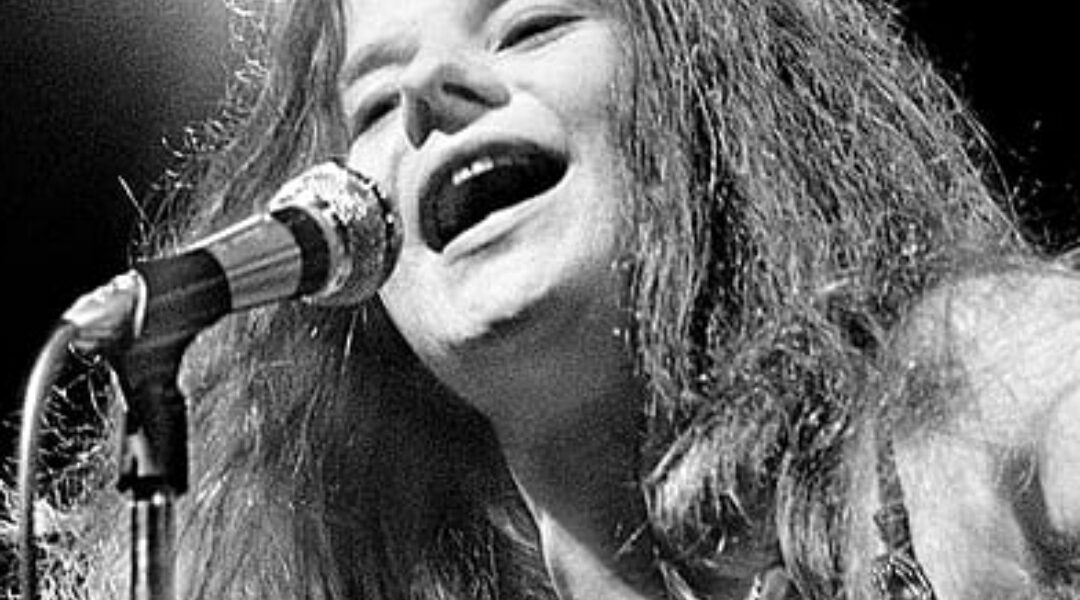It was just another night in San Francisco in 1967 — smoke curling through the air, laughter spilling from a crowded bar. The small stage in the corner sat empty until a young woman with wild curls and round glasses stepped forward. Her clothes were simple, her presence unassuming. Few looked up as she adjusted the microphone.

Then she began to sing.
The first note tore through the noise — rough, raw, and heartbreakingly human. Her voice wasn’t polished; it was alive. It carried pain, longing, and something wild enough to silence the entire room. Glasses froze halfway to lips. Conversations stopped. Some people cried. Others just stood there, stunned.
That was the night the world met Janis Joplin — the woman who could silence a room with her pain.
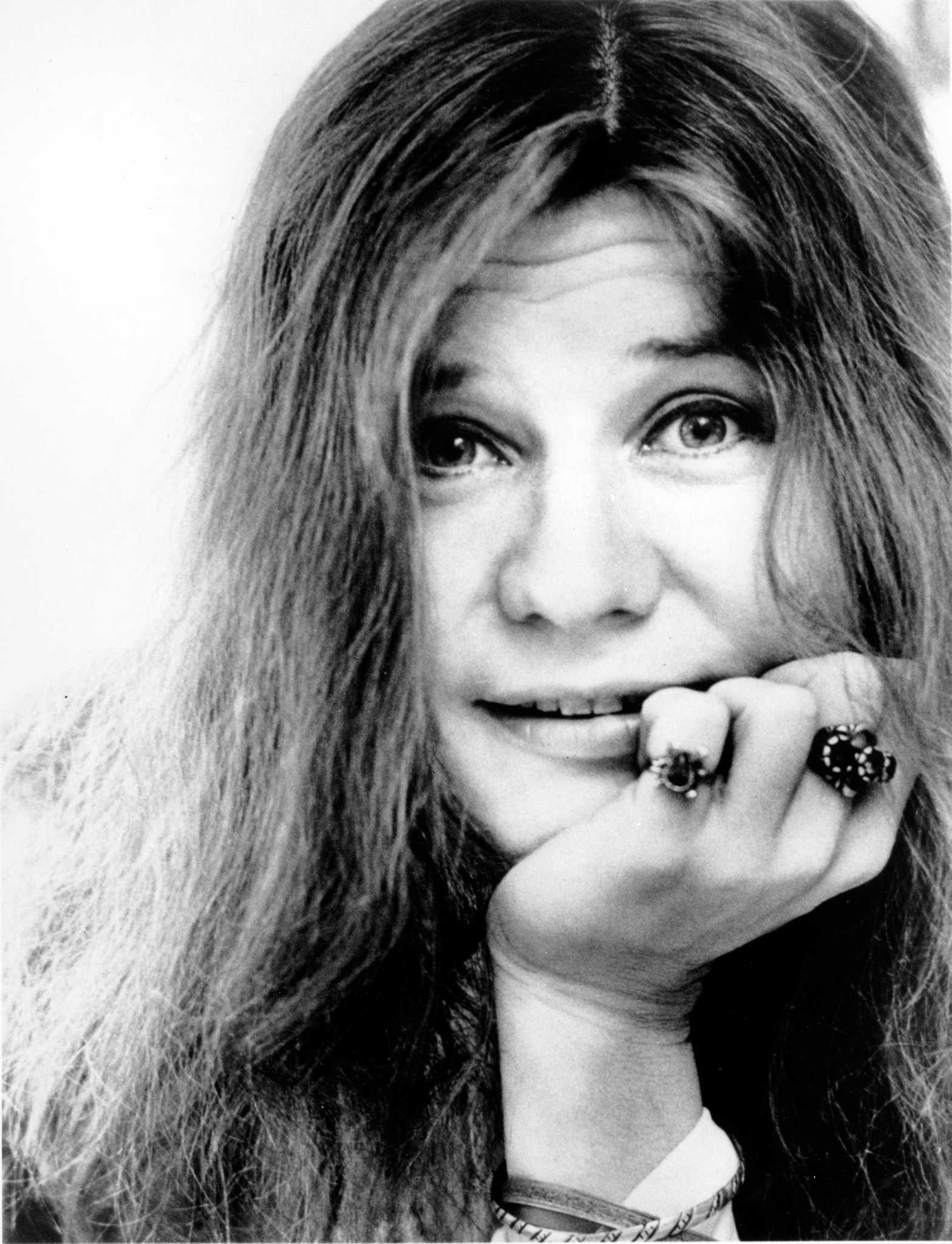
Janis grew up in Port Arthur, Texas, a refinery town where conformity ruled and individuality was a sin. She didn’t fit the mold — not in looks, not in attitude, not in spirit. While the other girls listened to pop and polished their nails, Janis was devouring the blues — Bessie Smith, Lead Belly, and the voices of the broken. She loved their imperfections because they sounded like truth.
High school was brutal. Classmates mocked her looks, called her names, made her feel invisible. On the walls of her bedroom, she scribbled a promise: “One day, they’ll all see.”
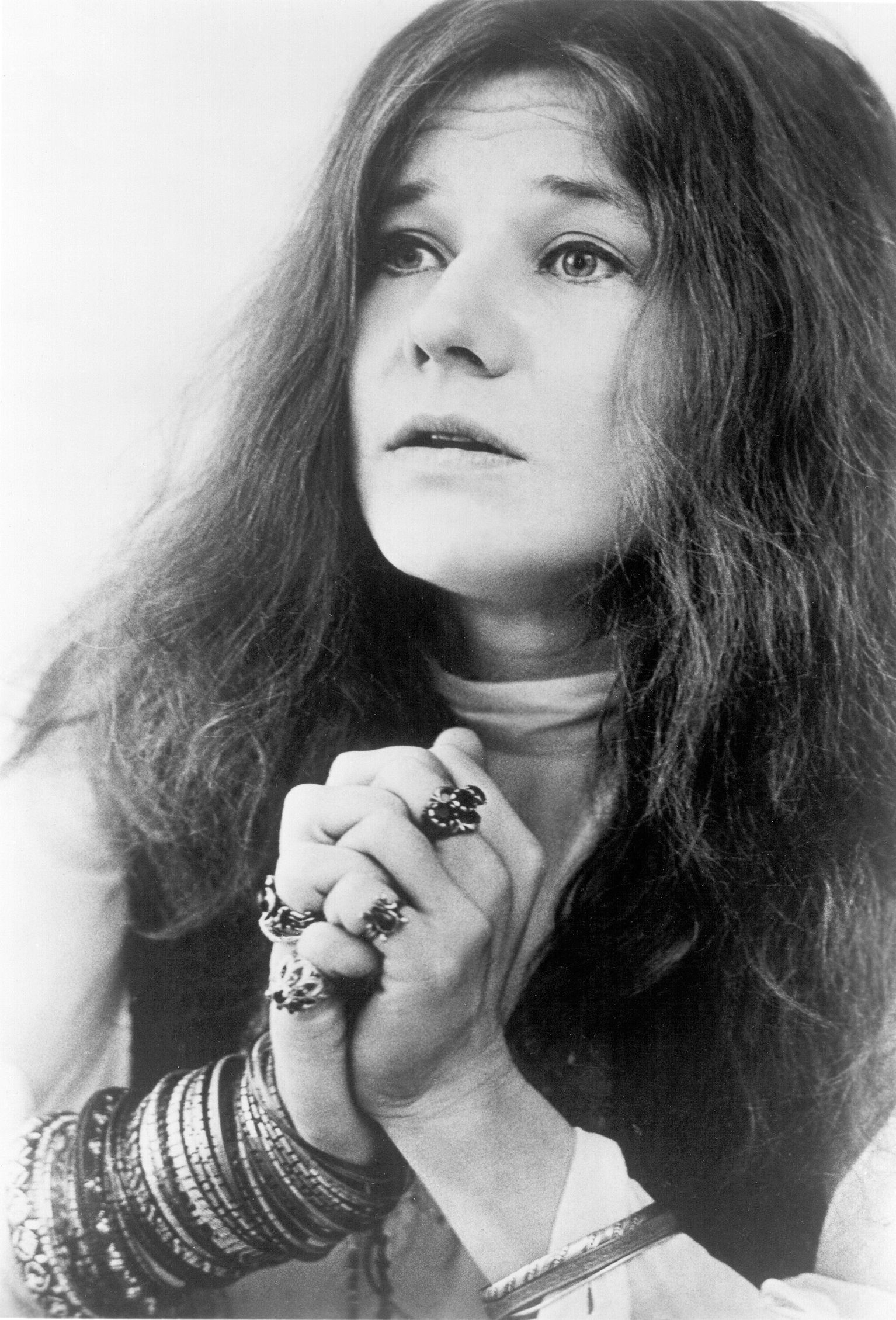
In Austin, she found a sliver of belonging — smoky bars filled with folk musicians and free spirits. She played small gigs, her voice too raw to be ignored. But even then, she was too big for the rooms she sang in, too emotional for the boundaries of genre.
By 1966, she packed her bags and moved to San Francisco — a city humming with rebellion and music. There, she joined Big Brother and the Holding Company. On stage, she was fire and thunder. Offstage, she was nervous, soft-spoken, and lonely, often drinking to calm her shaking hands before the lights came on.
But once she began to sing, she became something else — untamed, electric, unstoppable.
At the 1967 Monterey Pop Festival, she sang “Ball and Chain” with such force that the crowd stood in stunned silence. Mama Cass of The Mamas & The Papas was caught on camera mouthing one word: “Wow.”
Janis Joplin had arrived.
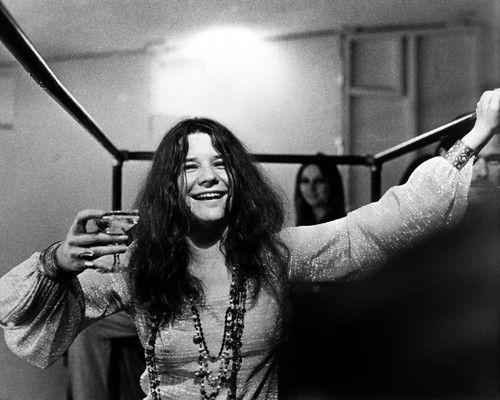
Yet behind the feathers, the laughter, and the whiskey-soaked confidence, Janis longed for something simpler — love, acceptance, a place to belong. “Onstage,” she once said, “I make love to 25,000 people, and then I go home alone.”
She fell hard, trusted easily, hurt deeply. No matter how much fame surrounded her, loneliness followed close behind.
When she returned to her high school reunion years later, she arrived like a queen — stepping out of a limousine in colorful clothes, radiant and defiant. But the old pain resurfaced. The stares, the whispers, the judgment — it was all still there. That night, she drank until the glamour faded, until the girl from Port Arthur felt small again.
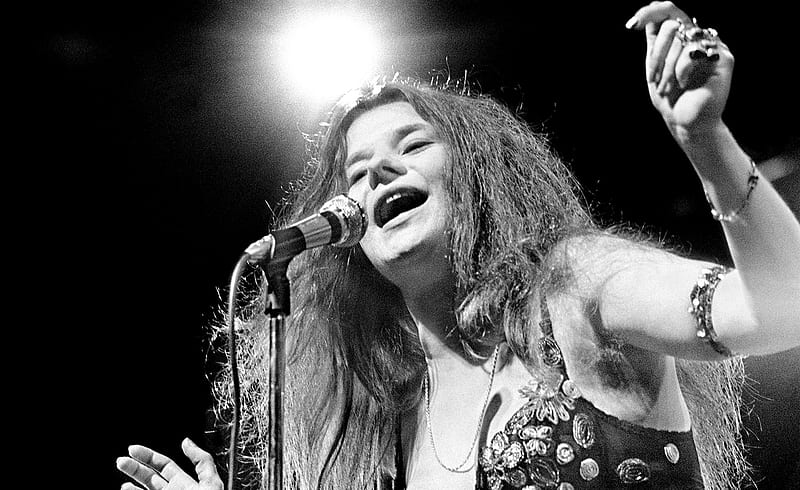
Her songs were her diary. “Piece of My Heart,” “Cry Baby,” “Maybe.” Every lyric was a confession, every scream a release. In the studio, she demanded perfection — not in sound, but in feeling. When she recorded “Me and Bobby McGee,” she did take after take, chasing the ache she wanted people to feel.
It was the last song she ever finished.
In October 1970, she recorded “Mercedes Benz” in a single take, laughing at the end. Three days later, she was gone — a heroin overdose in a lonely hotel room. She was twenty-seven.
No farewell, no encore. Just silence where her voice used to be.

But Janis Joplin never really left. Her voice still burns — wild, aching, unapologetically real. It lives in every singer who dares to sing like no one’s listening, in every soul who’s ever felt too different, too broken, too alive.
She wasn’t perfect — and that’s exactly why she mattered.
Because Janis didn’t just sing songs.
She sang truth — and in doing so, she gave her heart away one note at a time.
